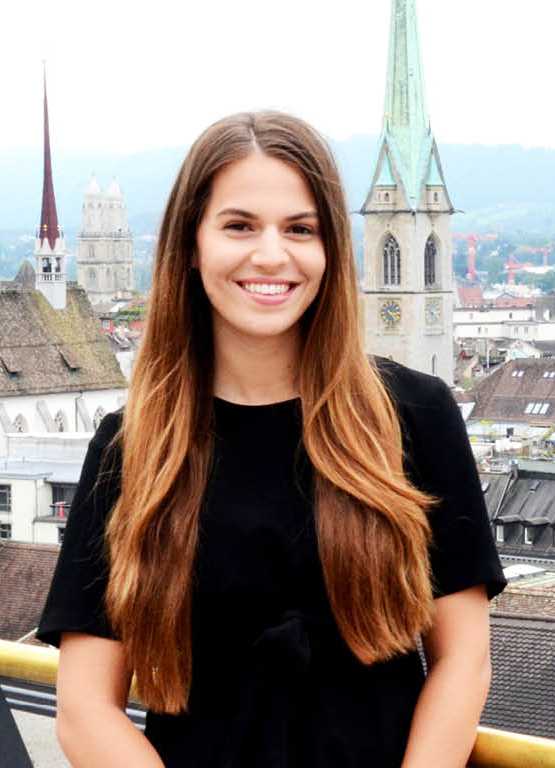Meet Marina, SSRF student from Serbia
Marina Draskovic came to us from the University of Novi Sad, Serbia, and spent her Student Summer Research Fellowship (SSRF) as part of Professor Friedemann Mattern’s team, where she helped develop an app that measures fatigability in patients with multiple sclerosis.

Marina, what was the goal of your research project?
In the Distributed Systems Group, I helped create an Android application that allows multiple sclerosis patients to measure their fatigability. Our goal was to give all multiple sclerosis patients, including those with physical limitations, easy access to the app. By implementing speech recognition into the app, we enabled patients with physical problems to control the app with their voice. In my research project, I focused on one particular aspect of speech recognition.
What was the main research problem you had to solve?
Speech recognition is the ability of a machine to identify words in spoken language and convert them into a format that a machine can read. Speech recognition performance is measured by accuracy and speed. A variety of factors can affect recognition performance and, in the worst case, lead to inaccuracies. These factors include pitch, volume and background noise. For example, people talking in the background or other ambient noise can result in transcription mix-ups and errors. Further, if words are mumbled or they run into each other, the software may not be able to cope. Or, speech recognition could be distorted when a person talks with a very strong accent that is not supported by the system. In my particular project, I focused on optimising the accuracy of the app’s speech recognition ability.
"I really like to think about a problem and try to come up with a solution of my own."Marina Draskovic
How did you tackle that problem?
My strategy included testing different approaches to speech recognition: continuous recognition that is happening real-time on one side; and post processing, that is analysing pre-recorded audio chunks, on the other side. Also, I tried using existing speech recognition libraries as well as making my own library. In the end, I compared the results between different approaches. It turned out that, in the context of this app, analysing pre-recorded audio chunks and using multiple existing libraries combined produced the most accurate results.
Did you enjoy working in research? Could you imagine pursuing it as a career?
I enjoyed it very much. As I had never done a research project before, there were moments where I felt overwhelmed – but that is just part of research. There will definitely be more research in my future as I’m planning to continue my studies. I really like to think about a problem and try to come up with a solution of my own. However, I believe that I will eventually end up working in industry at some point in the future.
Which three things did you like most about your two summer months at ETH?
Firstly, I loved the atmosphere in my lab and the whole institute. My colleagues were very warm, welcoming and friendly to me. Secondly, I appreciated that my mentors – Professor Mattern and Liliana Barrios – gave me a chance to try out my own research ideas, while still coaching and guiding me. And, last but not least, I very much enjoyed all the events that were organised for me and my SSRF peers – giving us a deeper insight into research, computer science, ETH and Switzerland.